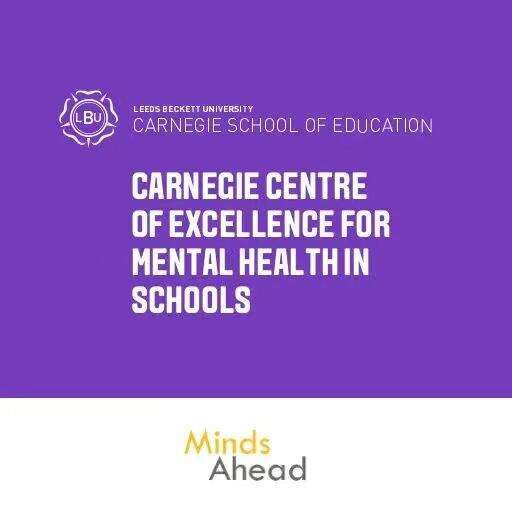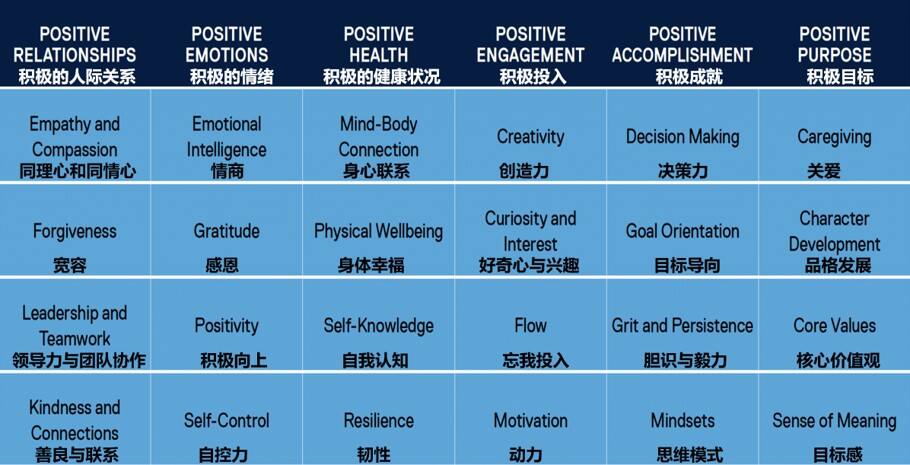

Recognising the hard work and commitment we have put into prioritising mental health, we are proud to announce that Wellington College Hangzhou has been recently awarded the Silver standard for the Carnegie Centre of Excellence Mental Health in Schools “Further Education Mental Health Award”, the first award of its kind in any school in China. By embracing this award, Wellington College Hangzhou is demonstrating a commitment to working towards excellent practice by prioritising mental health and wellbeing, thereby establishing a whole school culture where all members of a school community thrive and improve pupil outcomes.
Today, Mr. David Mackinnon, the Quality Assurance and Safeguarding Lead at Wellington College Hangzhou, will tell us more about the award and the outstanding wellbeing work we do at the College.
Our staff at Wellington College Hangzhou must complete the rigorous compulsory safeguarding training before pupils arrive for the new academic year. Hence, they know how to protect our pupils at school. Such activity includes an online course on child safeguarding and learning about the 52-page Safeguarding Policy. Every visitor to the campus, including parents, is required to wear a visitor’s card, where there is a list of how to keep the pupils safe from harm, including not using toilets designated for pupil use and not giving or taking personal information to or from pupils. Our security guards will help all visitors put tape over their phone cameras and remind them not to take photographs or videos of pupils. We have invited experts from the Wellington College China group to deliver safeguarding training for all staff. Our school counselling team has launched information-sharing sessions or invited professors from famous universities to give presentations to parents, helping them address any mental health-related issues in their children. Many parents, even teachers, have said that Wellington College Hangzhou has the strictest rules for protecting pupils. Everything we do in school shows our moral obligation to keep pupils safe in our care and how much emphasis we attach to building a safe and secure school.

Why do we keep emphasising the significance of mental health at schools?
According to the World Health Organization, one in seven 10 to 19-year-olds has experienced a mental disorder.
This data demonstrates the need to launch a wellbeing programme in school environments.
In 2006, Wellington College introduced wellbeing as a compulsory subject alongside English, the sciences and maths as part of the core curriculum. In doing so, Wellington College in the UK became the first school in the UK to introduce wellbeing lessons for pupils and became a pioneer of positive education. As a member of the Wellington College family of schools, Huili School Hangzhou has upheld this tradition and established a comprehensive wellbeing program where we adopt an approach that values young people’s happiness to the same extent as their academic success.

What is true happiness?
In the Foresight Report by UK Government Office for Science, the term “wellbeing” is not equal to “happiness” because wellbeing is defined as “a dynamic state, in which the individual can develop their potential, work productively and creatively, build strong and positive relationships with others, and contribute to their community”. The Greek philosopher Aristotle proposed the concept of ‘Eudaimonia’. This word describes a life lived with excellence or to the best of one’s ability towards fulfilling one’s true nature.
Our wellbeing lessons draw on philosophy informed by the abovementioned ideas of happiness. It teaches pupils how to flourish. Flourishing involves living life with purpose and aspiration, finding those things that imbue it with meaning, forging solid reciprocal relationships with others, engaging in life’s tasks to the best of one’s ability and having the strength of character to be resilient in the face of adversity.
What is the theoretical basis of the wellbeing lessons at Huili? What do Huili pupils learn in these lessons?

The innovative discipline of positive psychology underpins wellbeing lessons. Positive psychology asks questions such as:
What makes people feel satisfied with life?
What elements make up a life well-lived?
What makes people thrive in the face of adversity?
During wellbeing lessons, pupils explore the answers to these questions using the skills they acquire in our critical thinking programme. Indeed, there are strong links between the two; supporting pupils to gain a deeper understanding of their values, resisting the dissatisfaction that goes hand in hand with consumer culture, confidently determining what they would like out of life and becoming the person they are truly proud to be.
We follow the PEEC course (Positive Education Enhanced Curriculum) in our wellbeing lessons. It is an explicit curriculum designed for schools that stems from the research of Martin Seligman on the PERMA model of flourishing. Below is the table that shows the topics of the PEEC course.

What are the ways to realise a flourishing life?
Go with the flow
A flow state is when a person fully engages in the activity, is energised, and enjoys meaningful work—the process. People can find flow by taking on new challenges, doing something they want or getting on with a key to flow is not allowing your attention to be fragmented, dedicating uninterrupted time to get in the flow.
Savour and celebrate
According to psychologists, savouring is about appreciating an event or activity in the moment. Sharing the victories, big or small, is essential to help you see the good things around you. We often encourage our pupils to reflect on the positives as we celebrate success.
Show gratitude
Studies have shown that expressing gratitude helps people feel more positive emotions, decreases depression and anxiety, and greater happiness. To make it easier, showing appreciation should not become a burden. Instead, try attaching it to other weekly rituals.
Do good deeds
Research has shown that concentrating on good deeds is better than spreading them out. So do something nice for people around you or volunteer.
Find your purpose
To truly flourish, people need to believe that what they do has a purpose. So find meaning in all that you do. For some, this might require reframing how they view their work. If you are feeling down, you could start with a small project that can give you a sense of accomplishment when you finish, for example, organising your cupboards or a quick art project.
Take up a new challenge
Join a book club, learn a new language, try a new recipe or sign up for a yoga class. Although you do not need to make a significant change to stop feeling like you are languishing, seeking new challenges can bring about new accomplishments and revitalise your purpose.